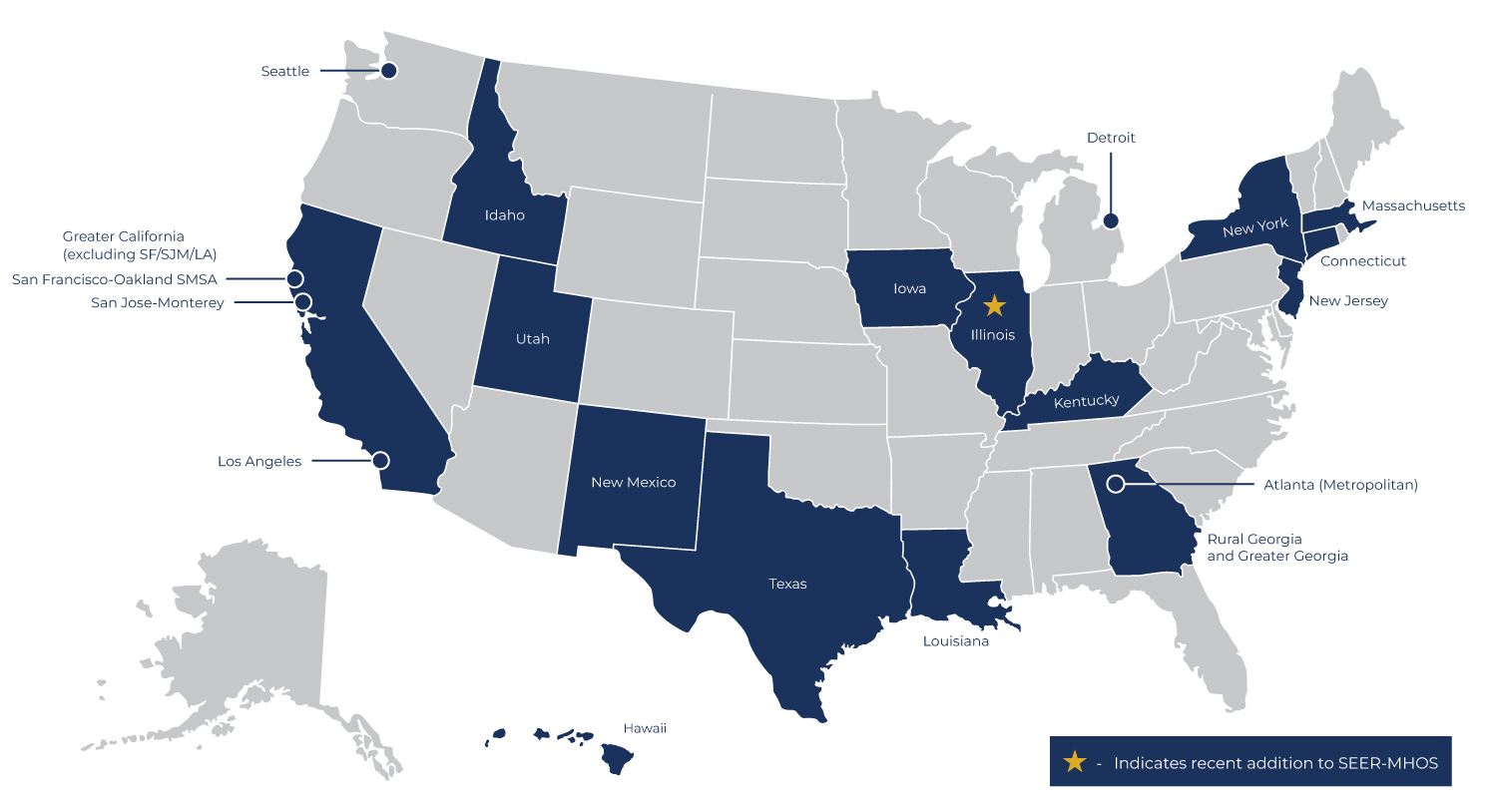Overview of SEER
The SEER Program is an epidemiologic surveillance system consisting of population-based tumor registries designed to track cancer incidence and survival in the United States. Collection of the SEER data began on January 1, 1973. The registries routinely collect information on newly diagnosed cancer patients residing in geographically defined areas.
The registries collect information about all primary cancers that a person may develop. The SEER data contain information about an incident cancer diagnosis and cancer-directed surgery and radiation therapy provided for first course of treatment. The registries collect information about all primary cancers that a person may develop. The SEER data do not capture information about surgery and radiation provided past four months of diagnosis, nor is there information about recurrence or metastasis that is detected subsequent to the initial diagnosis.
For more information about the SEER program and data, please see the SEER homepage .
.
The SEER data file
The cancer registry data released as part of SEER-MHOS are included in a customized file known as the SEER-MHOS Cancer file. This file is an expanded SEER Research Plus file (e.g., it includes additional information variables (e.g., on place of residence, registry-determined first course of therapy and biomarker test results) not typically released by SEER, but is limited to Medicare beneficiaries. As such, the SEER-MHOS Cancer file includes one record per tumor diagnosed among persons in the SEER database who have been matched with Medicare enrollment records. Each record includes information about the person (e.g., age at diagnosis, sex, race, ethnicity, and marital status) and the tumor (e.g., site, stage, histology, and grade). Refer to the 5-digit Site Recode Web Site Policy for the list of cancers available.
for the list of cancers available.
- SEER-MHOS Cancer File Data Dictionary Cases (PDF, 1.2 MB)
- ZIP Code Census File Documentation (PDF, 158 KB)
- Tract Census File Documentation (PDF, 158 KB)
SEER Cancer Registries Included in SEER-MHOS

Registry participation in the SEER Program has changed over time. Therefore, the years of cancer diagnoses included in the SEER-MHOS data resource varies by registry. The current linkage includes cancer diagnosis dates through 2021. Range of diagnosis dates varies by SEER Cancer Registry:
- 1970-79: California (San Francisco-Oakland SMSA), Connecticut, Detroit*, Hawaii, Iowa, New Mexico, Seattle, Utah, Rural Georgia, New Jersey, and Atlanta (Metropolitan)
- 1980-89: California (San Jose-Monterey, Los Angeles) and Greater California (excludes San Francisco-Oakland, San Jose-Monterey, Los Angeles)
- 1990-99: Kentucky and Louisiana
- 2000: Greater Georgia, Idaho**, New York**, Texas** Illinois** and Massachusetts**
*As of 2021, Detroit is no longer in the SEER Program but is included in the current data release for all listed years.
**Idaho, Massachusetts, Texas, Illinois and New York did not join the SEER Program until 2018+, but limited variables for cases diagnosed during the listed years are included in the current data release.
